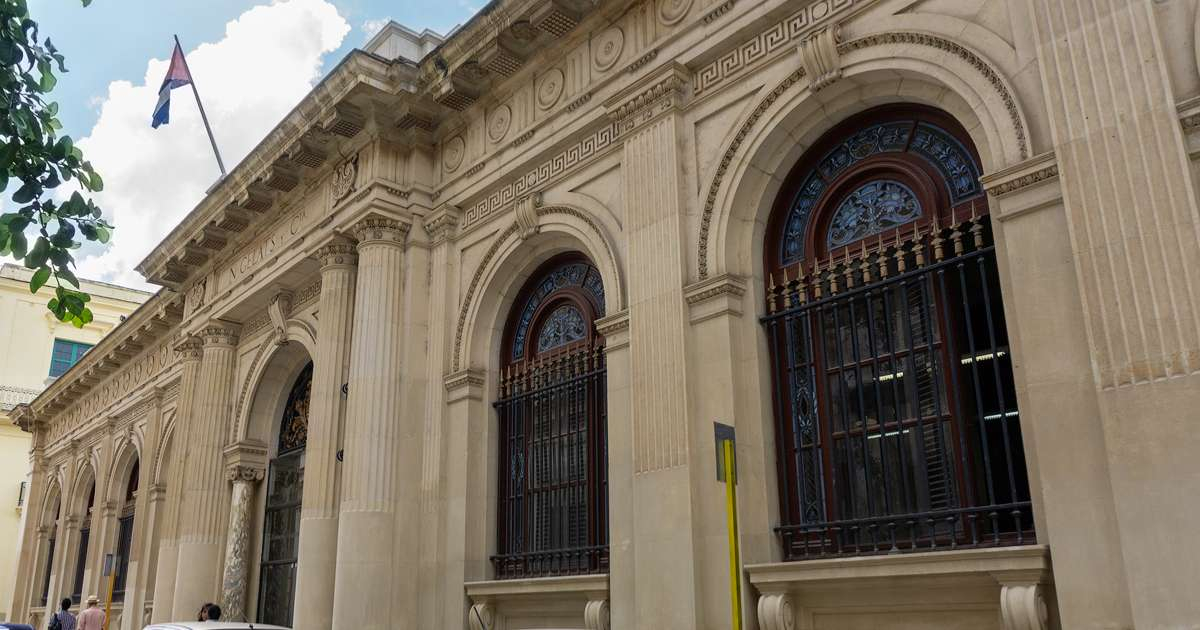
Properly read the published news, it is clarified that "CRF is not a creditor of the Cuban State", which means that the Republic of Cuba is left out of the lawsuit.
From now on, the process will continue only against the National Bank of Cuba (BNC) and, to this end, it must be indicated that the ruling continues to consider, therefore, the BNC responsible, and therefore, the lis pendens or procedural cause does not end ( only with regard to the Republic of Cuba - in Latin or continental law it would be that said Government is not directly responsible for the bank - but said entity has not been immune in the ruling. There is no complete acquittal principle, in law it only constitutes. a partial or partial recognition of the petitum or cause of request of the Government of Cuba, but it is not at all a complete estimate of its procedural indemnity, especially with regard to the BNC.
Emptying the BNC of content and imploding it—with the subsequent responsibilities of its administrators for their own acts not linked or binding to the BCC—that is the intelligent legal trick made before this lawsuit arose. Having removed the Republic of Cuba from the lawsuit is the other. Now, the litigation will continue vs. the BNC or what remains of it, and the legal determination of its responsibilities as a subject of rights and obligations. That is where it seems that the plaintiff CRF I will continue.
The genius of the Cuban side, at least in this judicial phase, was not only in the trial itself; although we must recognize the positive factor of the legal strategy of the barristers of the defense of the island, but in having taken the duties done to London.
By imploding, in the past, by decantation, the aforementioned BNC, destructuring it as a central regulatory, supervisory and issuing entity of the national currency and its debt, and leaving it as a “simple commercial banking institution”; that is, legal figure ex-new, without establishing a causal link to the Central Bank of Cuba (BCC), which is presumed, at least de facto, full legal surrogate of the previous one, as synallagmatic rights and obligations, whose assumption was in white.
Without entering into the interpretative substance of the ruling—whose legal opinion would correspond to a Barrister British, with better judgment—-, what does seem to be clear is that the CFR I fund keeps its procedural legitimacy and lis pendens alive to continue the lawsuit against the BNC. It will be up to Judge Sara Cockerill to determine whether the BCC, which presumably replaces or inherits the previous one, is itself subsidiary in civil liability for the debts contracted at the time by the diminished and quasi-phagocytized BNC.
The defense of the Cuban government in the London Court has created an appreciable wall of China to separate said government, as a presumption of good smoke (appearance of good law), of the legal responsibility of the BNC; but the doubt remains, even a reasonable one (which in constitutional purity of English Law always tips the balance in favor of the defendant: in doubt for the accused), whether the BCC could be declared “subrogated to the binding rights and obligations of the former BNC, by assuming in practice equal powers and powers as issuing bank, supervisor and controller” of the Cuban national banking and credit system.
There is still a part of the trial that determines the scope of jurisdiction of the BCC with respect to the BNC, in terms of the rights and obligations to be assumed.
The Cuban regime has converted the BNC into a mere commercial bank, stripping it of all the powers or prerogatives it had as the issuing bank, supervisor and controller of the country's banking and credit system. It is a very subtle strategy (denaturalizing its former essence, making it fall by implosion and emptying it of content regarding its “non-binding” decisions, regarding its own administrative acts, and referring them to its officials; and not to the institution in question. Yeah).
In summary, the defense of the Government of Cuba has followed a well-calculated procedural strategy: the burden of being declared from the beginning as direct manager of the BNC. However, the key is that the lawsuit (litis pendencia) continues. CRF I, is not classified as a “vulture fund” - spurious allegation of the defense to discredit the status of the credit generated by the creditor - and the court accepts the ownership of the debt, with its character as a legitimate creditor, as well as the conditions in that the entire financial operation has been developed.
What appears to be important for the CFR I plaintiff is that he now has an open path to go after the BNC and, by extension, if admitted, its concomitant BCC to, from there, derive, as far as possible, a subsidiary liability that would have to assume the Cuban State in some way, being the final holder of the public state character and dependent on the aforementioned BCC, regardless of the legal firewall of having made the former BNC “implode by decantation”.
And the superstructural skein of institutions in banking - and in almost everything that involves public and/or private matters in Cuba - are not independent, they do not have real functional or organic autonomy, and they always generate a subordinated communicating vessel, even legally, towards that superior and guiding force where Cuban society and the State pivot that regulates and controls everything: The Communist Party of Cuba.
What do you think?
SEE COMMENTS (2)Filed in:
opinion article: The statements and opinions expressed in this article are the exclusive responsibility of its author and do not necessarily represent the point of view of CiberCuba.